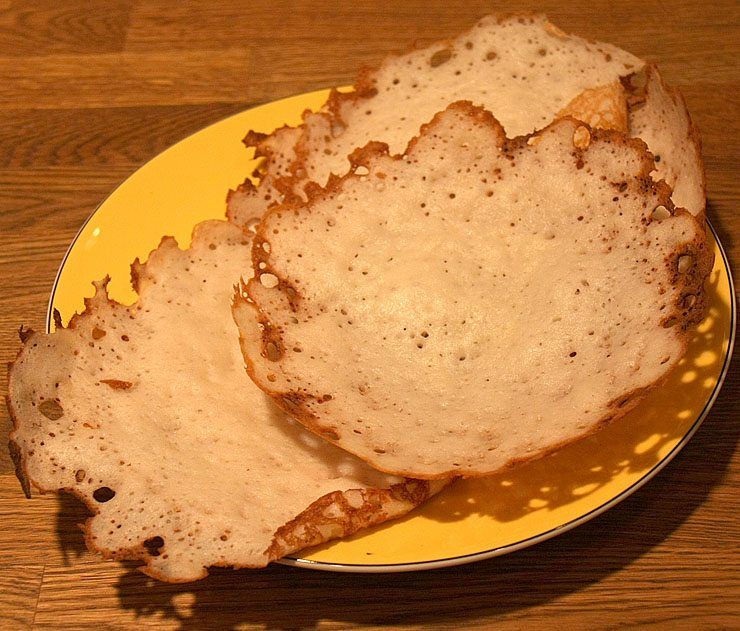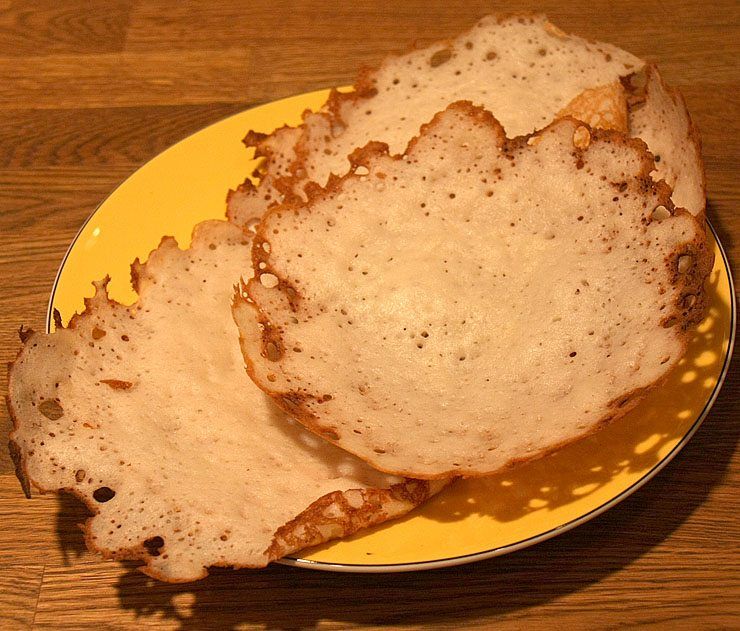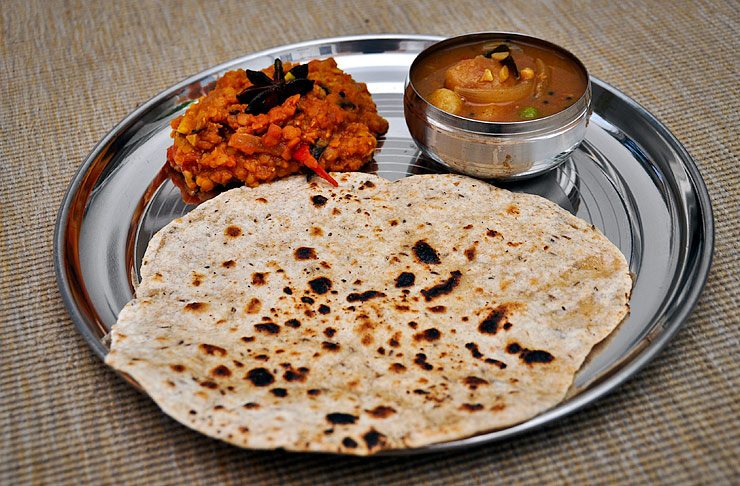

South Indian cooks make breads from lots of different ingredients more or less unknown in the west. This unusual and delicious bread from Kerala uses a fermented batter of rice flour and coconut milk. This is called Palappam, although often you just hear it referred to as appam, which simply means bread. It's often served for breakfast with a coconut and yogurt based vegetable curry but is perfectly good for lunch or dinner. I've tried many different recipes and the best one I've found is from the great Keralan cook Nimmy Paul from her book Kitchens of Kerala, so I bring it to you here - follow it closely to be sure of success. It requires a little advance planning, as the batter needs time to ferment.
Ingredients
1 cup rice flour
1 tablespoon semolina
1/2 cup water
1/4 teaspoon dry yeast
1 cup coconut milk
2 tablespoons sugar
1/2 teaspoon salt
Method
1. Mix the semolina into the water, put it in the microwave for about 20 seconds or on the stove for a few minutes until it turns into a porridge. Let cool.
2. Stir in the yeast, coconut milk and sugar.
3. Allow to rise for 4 to 8 hours. Check consistency - it should be roughly like pancake batter or a little thinner.
4. Heat a small wok on the stove, ideally a non-stick wok, but if not, brush with just a little oil
5. Pour about 1/2 cup or a little less into the heated wok and immediately pick up the wok and swirl the batter around the edges until all the batter has been distributed. When you set the wok down, a little batter will settle back into the middle.
6. Cover the wok and cook over medium heat for about 5 minutes. The edges should turn lacy and crispy and the bottom should start to brown.
7. Gently remove the appam from the pan with a thin flexible spatula.
8. They are best eaten fresh from the pan, but you can put them on a plate in a warm oven while you make the rest.
Notes
• Rice flour is relatively easy to find in asian markets. It's a great ingredient and adds a distinctive crispiness to any batter or bread in which it is used. It's also useful for thickening gravies.
• This batter is traditionally fermented using "toddy" the sap from a particular kind of South Indian palm tree that is made into an alcoholic beverage. Yeast is a fine substitute, but lacks a distinctive sweet note. Sometimes I add a little molasses or brown sugar rather than white sugar to make up for that.
• I find that the batter rises best in an oven with a pilot light or electric oven light turned on. In the winter, I sometimes turn on the oven for a minute or two to raise the temperature a little at the beginning.
• In South India, you can buy special pans for cooking this dish called Appachatti (literally Appam pan). This is very helpful, but a nonstick wok makes a perfectly good substitute.





